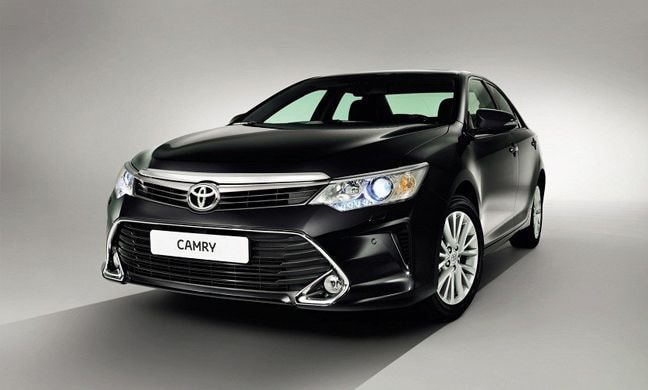Reducing car import tax: Budget loses revenue sharply.
According to the Ministry of Finance, when implementing commitments to reduce import tax on automobiles, the State budget will see a significant reduction in import tax revenue on automobiles and automobile components because these are items with high tax rates and large turnover...
Special consumption tax is considered a fairly stable source of revenue for the State budget in recent years. Special consumption tax is levied on essential goods, but consumption needs to be limited such as alcohol, tobacco, cars, etc.
According to the Ministry of Finance, annual special consumption tax revenue accounts for about 8-9% of total state budget revenue and about 1.8-2.6% of GDP. Of the total special consumption tax revenue, revenue from automobiles, cigarettes, alcohol, and beer accounts for the largest proportion.
Reduce car import tax according to international commitments.
 |
| New images of the 2015 Camry. Photo from the Internet |
The roadmap for preferential import tax reduction for automobiles and automobile components according to international trade commitments and agreements is as follows:
WTO Commitment: All types of cars must reduce import tax from 100% to 70% after 7 years from the date of accession (2014). Particularly for passenger cars with cylinder capacity of 2.5 or more, import tax rate will be reduced from 90% to 52% after 12 years from the date of accession (2019).
ASEAN Trade in Goods Agreement: Import tax on passenger cars with 10 seats or more and trucks has been reduced to 5% since 2006. In particular, passenger cars with 9 seats or less will have to be reduced to 0% by 2018 (import tax is expected to be reduced to 35% in 2015, 20% in 2016 and 10% in 2017).
TPP Agreement: It is expected that by 2026, import tax on passenger cars from TPP participating countries will be reduced to 0% (expected to be gradually reduced and start reducing from 2016).
For auto parts, some of the commitments are as follows: import tax reduced to 0% in 2018 according to ASEAN commitments; in other Free Trade Areas (FTAs), the commitment level is higher (in ASEAN - Korea is 15-30% in 2021); commitment in WTO from 0% - 30% depending on the type of parts (2014 is the last year of reduction).
Reducing import tax on auto parts as committed is also a policy that contributes to supporting the development of the domestic auto industry and competing with imported cars.
Is the budget in deficit?
According to the Ministry of Finance, when implementing the above commitments to reduce import taxes, the state budget will see a significant reduction in import tax revenue for automobiles and automobile components because these are items with high tax rates and large turnover.
In the context of reduced import tax and corporate income tax also reduced to 20% in 2016, if special consumption tax on cars is reduced, the state budget will further decrease revenue while the goal of encouraging the development of the domestic automobile industry will still not be achieved because special consumption tax must be reduced for imported cars as well.
According to the Ministry of Finance, through a survey of special consumption tax policies on cars in the region, the special consumption tax rate for cars with less than 9 seats and a cylinder capacity of 2,000 cm3 in Vietnam is 45%, which is the average tax rate in the region; lower than Malaysia, Laos and equal to Singapore and Cambodia.
Regarding incentives to encourage domestication of automobile production, in the period before 2007, when not yet joining the WTO, the special consumption tax policy on automobiles showed special incentives for the development of the automobile industry by reducing 95% of the special consumption tax rate for domestically produced and assembled automobiles.
However, from 2007 onwards, when Vietnam joined the WTO, the preferential treatment for domestically produced and assembled cars was a violation of the commitment, so this preferential treatment had to be removed.
According to Young Intellectuals






